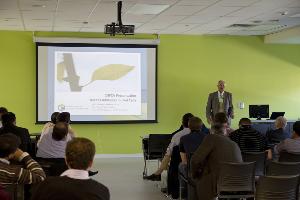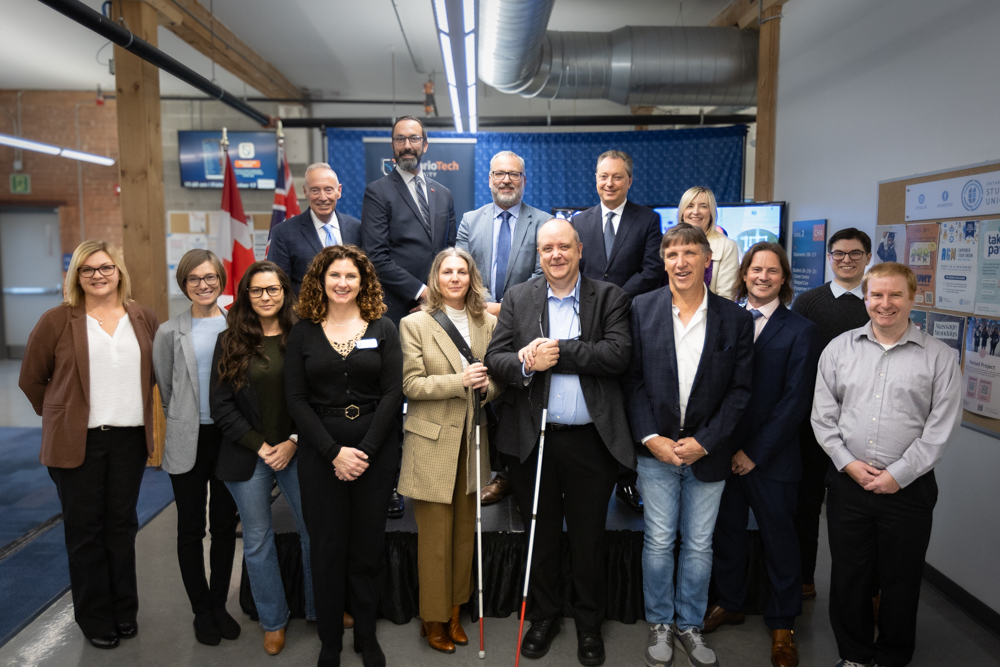Power forward: UOIT hosts international fuel cell workshop
October 13, 2011

The latest progress in the research and development of fuel cell science and technologies was in the spotlight at a recent international workshop hosted by the Faculty of Engineering and Applied Science at the University of Ontario Institute of Technology (UOIT).
More than 80 researchers, scientists, engineers, policy makers and students from academia, industry and government converged at UOIT as 11 invited speakers and more than15 poster presenters shared and exchanged information on development strategies and policy direction for the future commercialization and implementation of fuel cells.
“The fuel cell science and technology field has made significant research and innovation advances in the past decade, in part due to government emphasis on the importance of developing carbon-free solutions for power production in Canada,” said Dr. Ibrahim Dincer, professor of Mechanical Engineering at UOIT and workshop chair and organizer. “We are now at the point where we are seeing the development of more effective and efficient fuel cell systems, ranging from the portability of laptops to stationary applications such as backup power generators to mobile applications in transportation like forklifts in warehouses.”
The workshop featured distinguished speakers from several Canadian and U.S. universities, government labs and industries (including UOIT, Carleton University, University of Toronto, University of Waterloo, Princeton University, University of Pennsylvania, Natural Resources Canada, Canadian Hydrogen and Fuel Cell Association, and A.V.Tchouvelev & Associates Inc.). The workshop was funded by Mitacs Incorporated.
“Continued networking and collaboration between university researchers and industrial partners is essential to future growth and success in fuel cells,” added Dincer. “In this regard, UOIT has several key researchers working on fuel cells and related topics ranging from materials to modelling and simulation, and performance testing to system integration.”
Sustainable energy is one of UOIT’s five priority research areas. Faculty actively involved in fuel cell research include:
- Dr. Peter Berg, Faculty of Science (fuel cells and energy-economic models);
- Dr. Ibrahim Dincer, Faculty of Engineering and Applied Science (hydrogen and fuel cell systems);
- Dr. Brad Easton, Faculty of Science (fuel cells and hydrogen production); and
- Dr. Greg Naterer, Faculty of Engineering and Applied Science (electrochemical processes related to fuel cells and hydrogen production).



